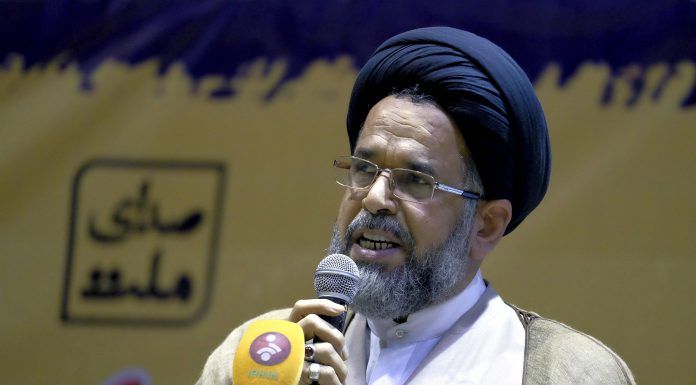March 7 – Heshmatollah Falahatpisheh, the chairman of the National Security and Foreign Policy Committee of the Majlis (Iranian Parliament), has called for a formal investigation into possible insider espionage aimed at influencing the decision-making process and field operations at the Ministry of Intelligence.
In comments delivered during an open session of the Majlis on March 4 — and directed at Iran’s Minister of Intelligence Mahmoud Alavi — Mr. Falahatpisheh said: “The main purpose of this investigation is to identify those elements that advance wrong, misleading, and wasteful ideas in the decision-making process.”
At no time in recent history has a Majlis deputy openly warned against insider espionage at the Ministry of Intelligence. Iranian state media have not, however, reported widely on Falahatpisheh’s remarks.
In the aftermath of a deadly terrorist attack during a military parade on September 22 in Ahvaz, capital of the southwestern province of Khuzestan — which killed 29 people — Falahatpisheh warned against “treasonous acts” inside the Ministry of Intelligence. He reiterated the same concern after a suicide attack on a bus carrying members of the Islamic Revolutionary Guard Corps (IRGC) in the southeastern province of Sistan and Baluchestan on February 13, which killed 27 people.
Speaking to reporters on February 17, Falahatpisheh said: “The terrorists who attacked a bus carrying IRGC personnel in Zahedan had received accurate intelligence from sources inside the Ministry of Intelligence. Officers from our intelligence agencies did not fire a single shot during any of these recent incidents, including the terrorist attack [on June 7, 2017, by ISIS agents] against the Majlis building. There were two vehicles with heavily armed guards in the front and back of the bus carrying IRGC members in Zahedan. They did not fire a single shot during the five minutes that the Peugeot carrying explosives and suicide bombers tried to move next to the bus. That is mind-boggling. It shows a lack of coordination among our intelligence agencies.”
Although Falahatpisheh singled out the Ministry of Intelligence for not standing up to terrorism, it is not the responsibility of the ministry to conduct military field operations. The IRGC, the Ministry of Defense and Armed Forces Logistics, the Law Enforcement Forces of the Islamic Republic (NAJA), border control and other security agencies have also been remiss in their duties to protect Iranian citizens.
Falahatpisheh, who escaped an assassination attempt in July 2016, must know about the work and responsibilities of various security and intelligence agencies.
Meanwhile, the Islamic Republic is under investigation for state-sponsored terrorism in Germany, France, Belgium, Sweden, Denmark, Norway, Netherlands, and Albania. Germany, France, and Albania have expelled some Iranian diplomats in recent months. According to the Dutch Foreign Ministry, the Islamic Republic hired local gangsters to assassinate two political activists on its soil in 2015 and 2017.
The EU announced a new set of sanctions on January 8 against a particular unit of Iran’s Ministry of Intelligence and two specific individuals for allegedly plotting terror attacks against political figures and groups in various European countries. The French authorities have also accused an Iranian diplomat based in Vienna of planning a bomb attack on a Paris-based Iranian opposition group.
Investigations into the Islamic Republic’s alleged terrorist activities in Europe have soured Tehran’s relations with the EU. Iran desperately needs the EU to implement the so-called Special Purpose Vehicle (SPV) devised to ease the effects of U.S. sanctions on European companies trading with Iran.
Translated from Persian by Fardine Hamdi




